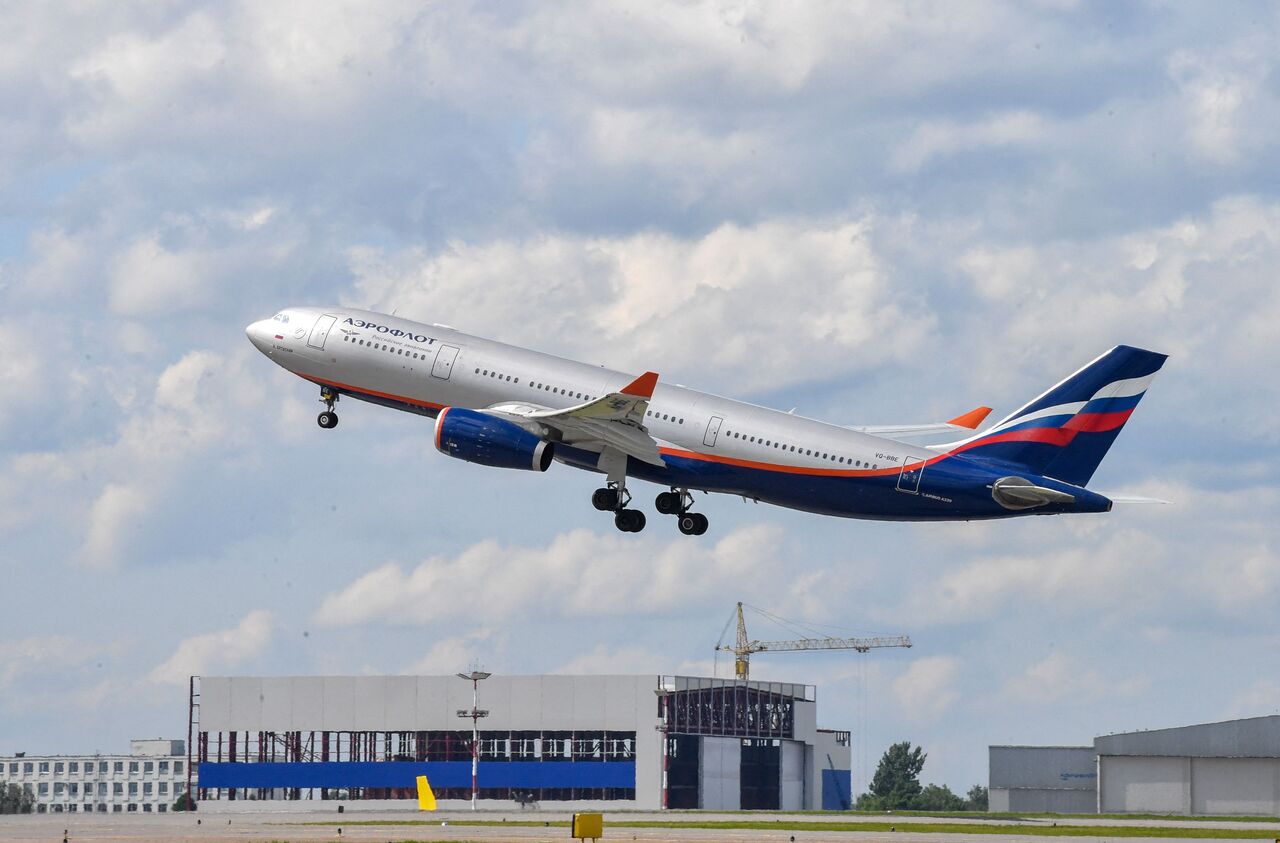Asian airlines spared from Russia-Europe airspace closures
Sign up now: Get ST's newsletters delivered to your inbox

Flying around Russia, as many western airlines had to do for years during the Cold War, can add hours to flight times.
PHOTO: AFP
Follow topic:
HONG KONG (BLOOMBERG) - The closing of Russian airspace to many European airlines has so far spared Asian carriers that have had a slower recovery from the pandemic than rivals elsewhere in the world.
The European Union on Sunday (Feb 27) shut its skies to Russian planes in the wake of the invasion of Ukraine, and Moscow had already imposed similar bans on flights from many European countries. As the likes of British Airways, Air France-KLM and Deutsche Lufthansa scrap flights across Russian territory, Asian carriers can still fly over the country, the shortest route between the two regions.
"Asia has less exposure to Russia and Ukraine," said Singapore-based aviation analyst Brendan Sobie. But Asia is "behind in reopening and recovering" from Covid-19 restrictions, which grounded much of its traffic over the past two years.
As at Sunday afternoon, Cathay Pacific Airways, Korean Air, China Eastern Airlines and Air China were still flying over Russia, which makes up about one-eighth of the world's landmass and spans across much of northern Europe and Asia. The country's vast reach makes it difficult for carriers to avoid on many intercontinental routes.
Flying around Russia, as many western airlines had to do for years during the Cold War, can add hours to flight times. The higher cost of fuel, which has spiked since the invasion, makes that extra time in the air even more expensive.
Finnair, which has carved out a niche providing transit passengers from elsewhere in Europe with short flight times to Asia via Helsinki, has perhaps the most to lose of any western carrier.
Almost two-thirds of 537 long-haul Finnair flights scheduled to and from Helsinki in March are set to start or finish in Asia, data from aviation consultancy Cirium shows. Even before the EU's ban, it cancelled some flights to Asia, diverting others to avoid Russian airspace.
"For many of our North-east Asia flights, rerouting would mean considerably longer flight time, and operations would not be economically feasible," said Ms Paivyt Tallqvist, a spokesman for Finland's national carrier.
Pandemic restrictions
For the industry as a whole, the effects are muted by Asian countries' strict pandemic-related restrictions on incoming passengers. Travel to and from China, in particular, has been virtually halted by the country's Covid-19-zero policy. Many carriers have also stopped flights to Hong Kong for the coming weeks due to onerous quarantines for travellers and flight crews.
European airlines may avoid being cut off completely from eastbound travel thanks to global airline alliances like Oneworld and SkyTeam and separate commercial agreements with Asian carriers to reciprocally carry one another's passengers.
Singapore Airlines has the most flights of any carrier scheduled between Europe and Asia in March, according to Cirium data. Many of its itineraries pass to the south of Russia.
Flights by Japan Airlines, All Nippon Airways and Korean Air spend hours over the country on their way to and from destinations like Tokyo and Seoul. With China still mostly closed, European carriers' flights to and from Japan and South Korea will be most affected for now, said former Air France vice-president Henri Hie.
Korean Air said its flights are not currently facing problems, but it has developed contingency plans if Russia shutters its airspace.
"If the entire Russian airspace is closed, our flights to/from Europe will be impacted," a Korean Air spokesman said in an e-mailed response to questions.
Avoiding Russia
Japan Airlines said last week that it was suspending flights to Moscow but continuing to fly over Russia after confirming it was safe to do so.
For destinations further south, it is easier for carriers to circumvent Russia.
Qantas Airways said on Sunday it would reroute its Australia-Britain flights away from Russia. The Australian flag carrier said it was going to use an alternative flight path through the Middle East, adding an hour to flight times. Some trips to Europe already take as much as 17 hours.
If airspace bans spread to involve carriers from outside Europe, Asian airlines could still be hit hard, Mr Sobie said, because they also fly over Siberia on some routes to North America as well as Europe.

